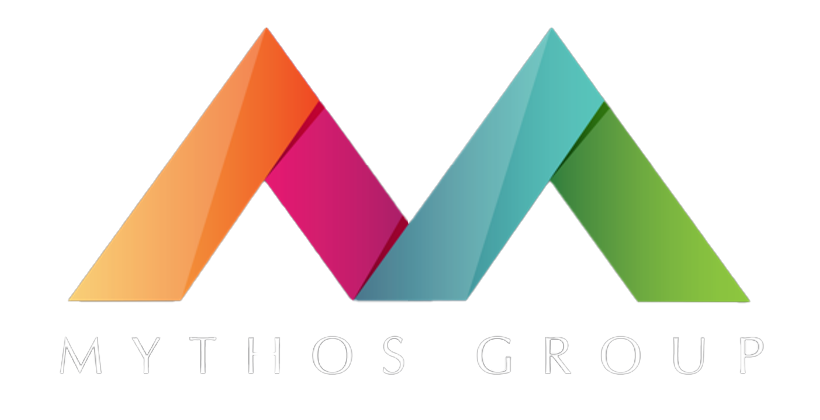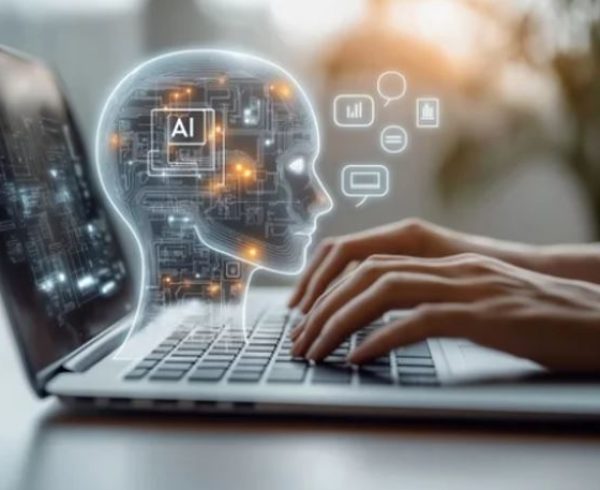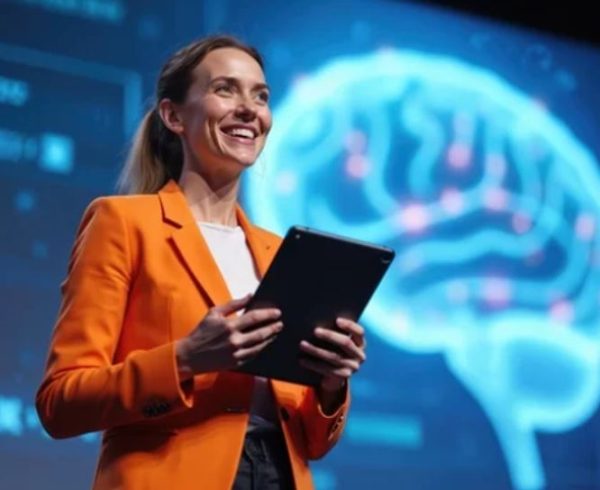Artificial Intelligence (AI) continues to evolve at an unprecedented pace, moving beyond static algorithms and chatbots to more dynamic and autonomous systems. One of the most transformative developments in this space is the rise of AI agents. According to McKinsey, “An AI agent is perceiving reality based on its training. It then decides, applies judgment, and executes something. And that execution then reinforces its learning. It learns if what the agent did was good or bad and then feeds that back in.”
These are intelligent systems capable of making decisions, taking actions, and learning from the results, often with minimal human intervention. These agents are poised to revolutionize how businesses operate, from automating routine tasks to optimizing complex operations.
As businesses seek the next frontier of competitive advantage, understanding what AI agents are, how they differ from traditional generative AI, and which industries stand to benefit is crucial to achieving business success. In this article, we’ll explore these aspects and discuss how your organization can use technology to drive innovation and efficiency.
What Are AI Agents?
AI agents are systems designed to perceive their environment, make decisions based on that input, and act autonomously to achieve specific goals. Unlike traditional AI systems that rely heavily on human instruction or respond within limited, predefined boundaries, AI agents operate with a higher degree of independence, according to FullStack.. They can plan, reason, and adapt in real-time, often coordinating with other agents or systems to solve complex problems.
These agents are not limited to one-off tasks. Instead, they can pursue multi-step objectives, navigate unpredictable scenarios, and optimize outcomes through continuous learning and adaptation. Whether it’s managing supply chains, responding to customer service inquiries, or handling backend IT operations, AI agents function like digital employees, equipped to tackle business challenges at scale.
AI Agents Vs. Generative AI
Generative AI has become a phenomenon over the past few years. While agentic AI and generative AI have some similarities, they also have their differences. Let’s discuss.
Similarities
Both AI agents and generative AI systems are branches of artificial intelligence and often share underlying technologies. They are both capable of the following:
- Interpreting input data
- Generating output
- Adapting over time
Both types can improve user experience, streamline operations, and reduce manual workloads in various business contexts. For example, ServiceNow has capitalized on both generative and agentic AI. Their AI services can be used in nearly every sector of business, including IT service management, HR operations, and customer service.
Differences
The key distinction lies in functionality and autonomy.
Generative AI, like ChatGPT, is primarily focused on creating content, including:
- Text
- Images
- Code
This is based on patterns learned from massive datasets. It’s reactive by nature: it performs well in generating responses or content when prompted by a user.
AI agents, on the other hand, go further. These models are goal-driven rather than just prompt-driven. AI agents can do the following:
- Initiate actions
- Follow through on complex tasks over time
- Collaborate with other systems
- Adjust their strategies based on feedback.
They’re designed for continuous interaction with environments, such as CRM systems, APIs, or real-world devices, rather than isolated tasks, as noted by Elevate.
For example, while a generative AI model can draft an email, an AI agent could monitor your inbox, detect high-priority requests, craft responses, schedule follow-ups, and escalate issues without explicit human instruction at each step.
Use Cases
Additionally, each type of AI is suited for different use cases. Generative AI excels in creative tasks, like writing marketing copy, designing visuals, or coding templates. Conversely, AI agents are best suited for operational and decision-making tasks, such as automating workflows, managing logistics, or proactively handling IT alerts.
Industries That Could Benefit From Agentic AI
The potential of AI agents spans nearly every industry, offering both cost savings and performance improvements. Here are a few sectors where AI agents are particularly transformative:
Healthcare
AI agents can assist in patient monitoring, diagnostics, and treatment planning. For example, agents can continuously analyze patient data from wearable devices, flag abnormalities, and even schedule follow-up appointments. They can also coordinate between departments, reducing bottlenecks and improving patient outcomes.
Finance
In banking and investment firms, AI agents can monitor market movements, execute trades, detect fraudulent activity, and manage compliance reporting, according to CFI. Instead of reactive customer service chatbots, AI agents can handle entire client onboarding processes, credit risk analysis, and personalized financial planning.
Manufacturing And Supply Chain
AI agents can oversee inventory levels, place orders, route shipments, and adapt logistics based on weather, demand, or labor shortages. By integrating with IoT devices, they can predict equipment failures before they happen, reducing downtime and maintenance costs.
Retail And E-commerce
In this space, AI agents can dynamically adjust pricing, manage ad campaigns, automate customer service across channels, and personalize the shopping experience. They can track customer behavior across platforms and make real-time decisions to increase conversions and customer satisfaction. Implementation of AI agents has already begun at leading e-commerce firms, including Shopify.
Technology And IT Services
Tech companies are using AI agents for automated software testing, cybersecurity monitoring, and internal IT help desks. These agents can detect anomalies, patch vulnerabilities, and escalate issues only when human intervention is truly needed. For example, Azure AI provides software services that supply call centers with AI agents to field calls, as detailed by Microsoft.
Human Resources
AI agents can screen resumes, schedule interviews, conduct preliminary candidate assessments, and handle onboarding tasks, as reported by IBM. This frees HR professionals to focus on strategic, people-focused initiatives rather than administrative overhead. For now, AI agents are only able to work on administrative, paperwork-type tasks. Since HR is a nuanced position, it still requires the human touch to be done effectively.
Contact Mythos Group To Learn More
The AI landscape is shifting rapidly, and businesses that move early stand to gain the most. At Mythos Group, we specialize in helping organizations identify, implement, and scale business solutions tailored to their unique needs. Whether you’re just beginning your AI journey or looking to integrate cutting-edge autonomous systems, our consultants bring the expertise, tools, and strategic insight to help you succeed.
We don’t believe in one-size-fits-all. Our approach is grounded in business outcomes—from increasing productivity to reducing costs to enhancing customer satisfaction. We partner with industry leaders, leverage the latest agentic AI platforms, and provide hands-on guidance every step of the way.
Let’s explore how AI agents can power your digital transformation. Contact Mythos Group today to schedule a consultation!







